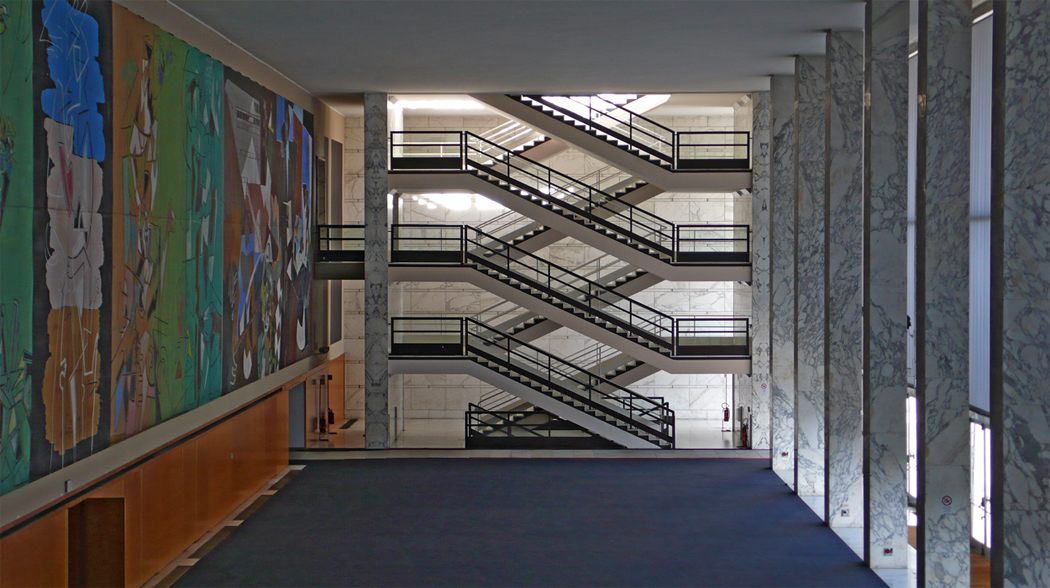MODERNISM & FASCISM
Despite all former appearances to the contrary, the upcoming seminar organized by Franco Baldasso and Sara Marzioli seems more pertinent than ever. Join us at the Modernist Studies Association Annual Conference in Pasadena: Saturday, November 19, 1:30-3:30 pm, La Canada Room, Westin Pasadena. In 2010 the Guggenheim Museum in New York inaugurated Chaos and Classicism: Art in France, Italy, and Germany, 1918–1936, a groundbreaking exhibition showcasing the disquieting yet profound continuity between aesthetics and politics, which characterized the early 20th Century. This controversial nexus spans the entire range of modernist art and literature in the 1920s and 1930s, from film to architecture to poetry. Ideologies of (national) regeneration that supported fascist “revolutions” took inspiration from anti-capitalist theories of space and time and a modernist reappraisal of national tradition through the lens of “primitivism,” or the secular religion of the state. The massive employment of avant-garde techniques in fascist propaganda and cultural industries, both in the metropole and abroad, aimed at the creation of new imperial and biopolitical geographies. The seminar delves into the epistemological scenario opened by recent scholarship such as Griffin (2007), Ravetto (2007), Antliff (2007), Gentile (2009), Finchelstein (2010), Ben Ghiat (2015), to investigate the fraught relationship between ideology, visual art, literature, history, and society. It seeks to investigate the import of the modernist perspective to the study of fascist political and cultural experiments of creating “the new man” (and “a new age”).
We will organize the papers around three main trajectories of inquiry: 1) the allure of modernist ideologies of regeneration on artists and intellectuals between the two World Wars; 2) their active role in fascism’s cultural industry; 3) the memorialization or silencing of the conundrum of aesthetics, technology, and violence after the defeat of (European) fascism, and its afterlife in the global arena.
Our guest speakers are Prof. Jennifer Scappettone (University of Chicago) and Prof. Laura Wittman (Stanford).
